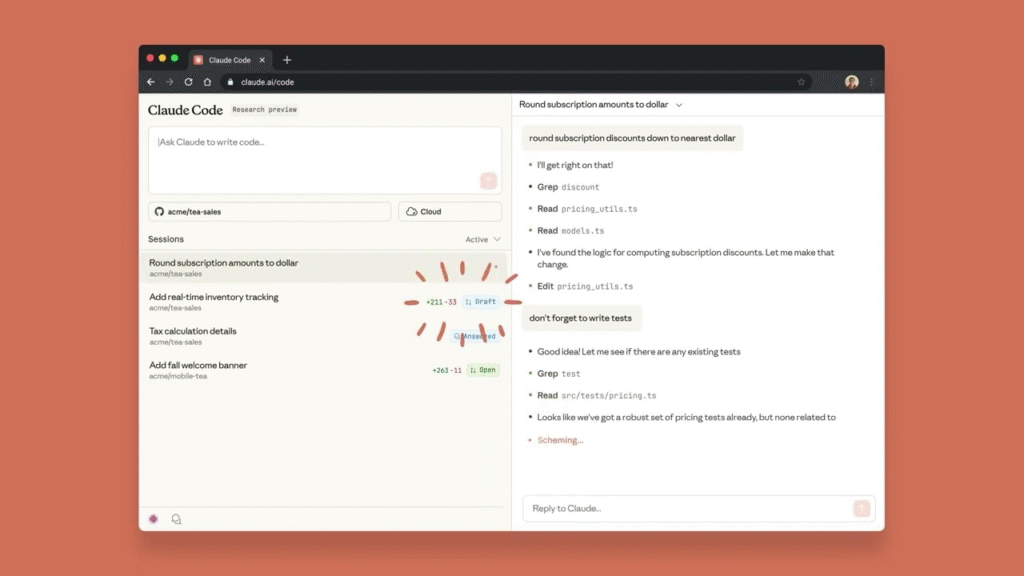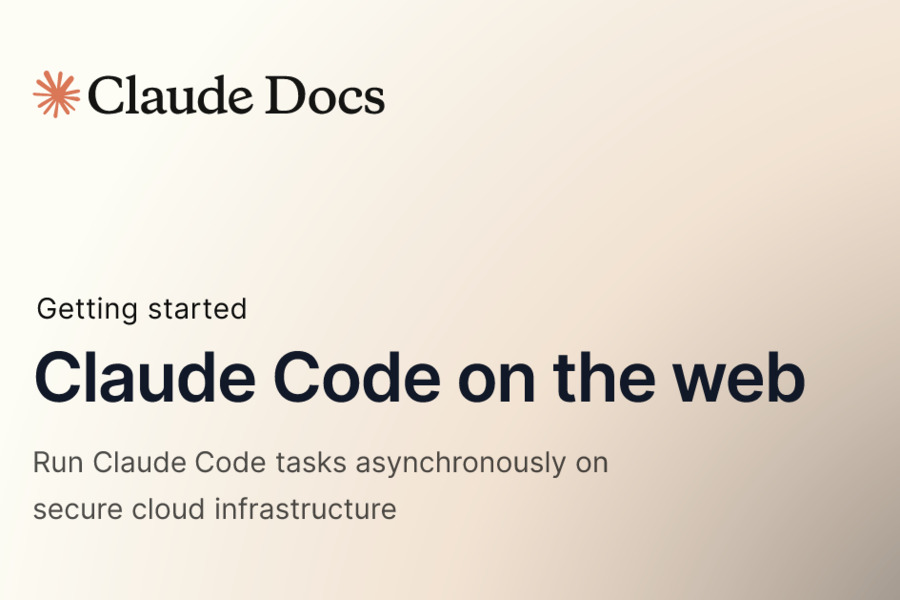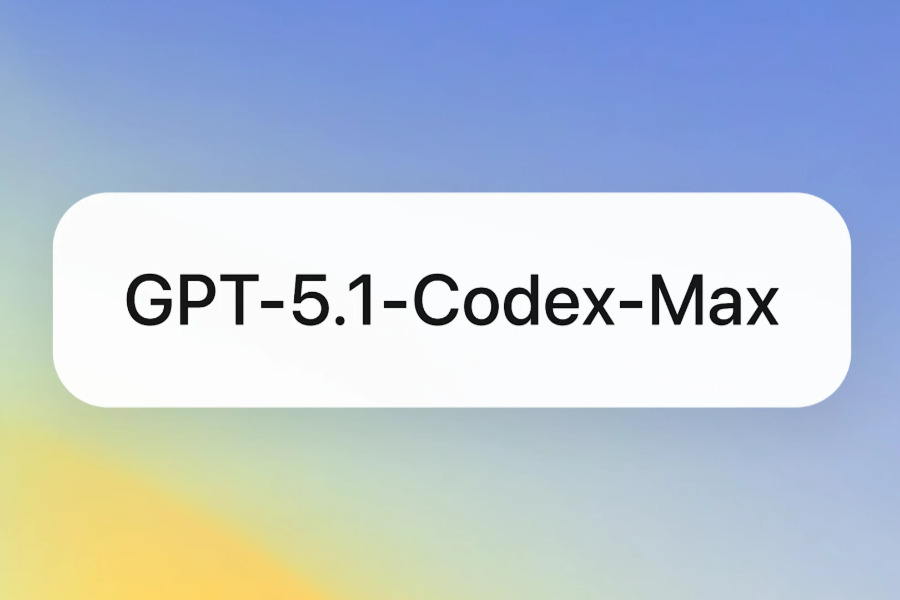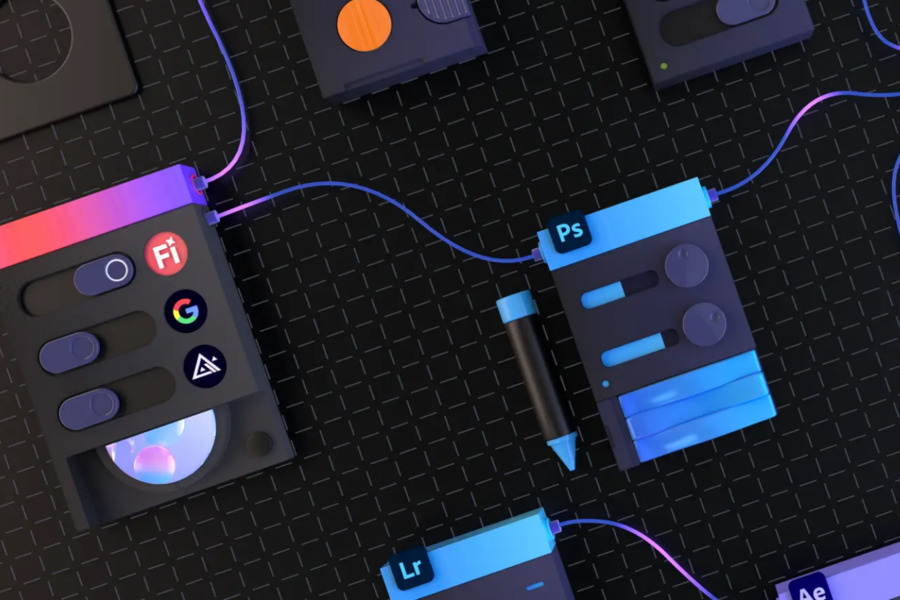Anthropic has launched a web version of its powerful AI coding assistant, Claude Code, fundamentally changing how developers interact with the tool. This strategic move transforms the previously terminal-based assistant into an accessible browser experience, allowing developers to create and manage multiple independent AI coding agents directly within their web browser.
The introduction of Claude Code on the web represents Anthropic’s latest effort to broaden accessibility and embed AI-assisted coding into more developer workflows. By moving beyond the command line to a full-featured web interface, the company aims to enhance productivity and simplify parallel task management for development teams.
What is Claude Code?
Claude Code is an advanced AI coding agent powered by Anthropic’s high-performance large language models, including the recently released Claude Sonnet 4.5 and Haiku 4.5. Initially introduced as a command-line tool, it enables developers to delegate complex coding tasks to an autonomous AI agent that can understand natural language instructions and generate, debug, and refactor code across multiple programming languages.
The tool has gained remarkable traction among developers since its broader release. Anthropic reports that Claude Code has grown 10× since May 2025 and now drives hundreds of millions in annualized revenue. Internal teams at Anthropic reportedly generate up to 90% of their code through Claude, signaling how rapidly AI-assisted development is scaling. This growth has contributed to a 67% jump in output per engineer even as Anthropic’s engineering team doubled in size.
Related Reading: Claude Code 2.0 Launches
Who can use Claude Code on the Web?

Access to Claude Code on the web is currently available as a research preview for Anthropic’s premium subscribers, positioning the product as a professional, enterprise-grade tool.
The web-based coding agent is accessible to users on Anthropic’s paid subscription tiers:
- Pro Plan: Priced at $20 per month
- Max Plans: Higher-tier plans providing significantly increased usage limits and access to Anthropic’s most powerful models
Subscribers can access the new feature by visiting Claude’s website at claude.ai/code. The functionality is also integrated into Anthropic’s iOS mobile application, allowing developers to assign coding tasks from their iPhones. This mobile capability means developers can delegate bug fixes while away from their desk and return to completed pull requests ready to merge.
The web version includes GitHub integration, secure sandbox testing, and support for handling multiple tasks simultaneously. Git interactions are handled via a secure proxy service, and developers can run tasks in parallel across different repositories from a single interface with automatic pull request creation.
Intensifying Market Competition for AI Coding Tools

The market for AI coding assistants has become one of the most competitive sectors in the generative AI industry. According to research from CITIC Construction Securities, AI Coding utilizes large language models and retrieval-augmented generation to automate software development tasks, significantly enhancing efficiency and reducing labor costs. The market is accelerating rapidly, projected to reach $27.17 billion by 2032 with a compound annual growth rate of 23.8%.
The competitive landscape has evolved from what was once a domain dominated by Microsoft’s GitHub Copilot—which now boasts over 20 million users —into a fierce battleground with numerous performers. Major players now offering sophisticated AI coding solutions include:
- Microsoft (GitHub Copilot): Remains a formidable force through deep integration with the ubiquitous GitHub platform and widely used developer environments
- Google: Leveraging its deep AI research with products integrated into its developer tools and cloud services
- OpenAI: Continuing to push state-of-the-art capabilities with GPT-powered coding tools
- Cursor: A specialized competitor that has built a strong following by focusing on an AI-native code editor experience, currently generating $5 billion in annual recurring revenue
Final Words on Claude Code on the Web
The launch of Claude Code on the web significantly enhances accessibility but occurs within an increasingly competitive AI coding landscape. As competitors rapidly improve their offerings, Anthropic’s future success will depend on several key factors beyond basic model performance.
Effective integration into existing developer workflows—particularly through seamless IDE compatibility and CI/CD pipeline connections—will be crucial for enterprise adoption. The tool’s ability to deliver measurable productivity gains will ultimately determine its staying power in professional environments.



